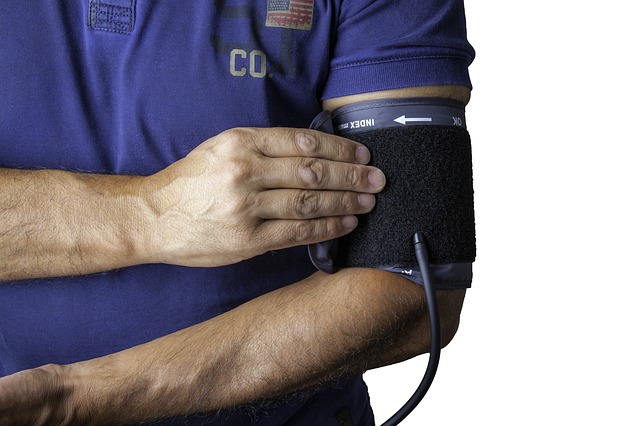The digital revolution in healthcare is quickly gaining momentum and one of the best indicators is the proliferation of digital health startups. The amount of funding raised by health tech startups in the first quarter of 2019 was close to $986 million, with biopharma and device startups getting the lion’s share of funding.
What makes these companies so appealing to investors? Their innovative solutions to reduce healthcare costs and improve patient outcomes. Leveraging artificial intelligence (AI), complex medical software and voice technology, health tech startups are discovering new ways of not only treating and managing conditions, but also predicting them.
We gathered five of the most promising and innovative medtech startups worth your attention in 2019:
1. Grail
Several studies have shown that cancer patients have higher rates of survival if diagnosed in the very early stages of the disease. But effective screening tools are available for only certain types of cancer and many deadly cancers are often detected when it’s too late to be cured. In fact, five million new cases of cancer diagnosed in 2018 “could have been detected sooner and treated more effectively,” says the American Society of Clinical Oncology (ASCO).
Grail, a California-based startup, is trying to positively impact those statistics with their pioneer technology. Using machine-learning algorithms and population-scale clinical studies, the company developed a next-generation sequencing (NGS) blood-sampling device that can detect multiple deadly cancer types from a single blood draw.
The FDA recently granted Breakthrough Device designation to their device, speeding up the product’s development, assessment, and review. Grail’s device not only detects the presence of multiple types of cancer, but it can also trace cancers with a high rate of accuracy in parts of the body where the cancer originally developed.
2. Pear Therapeutics
The opioid crisis in the United States has reached epidemic proportions, with more than 130 Americans dying every day from opioid overdoses, according to the Centers for Disease Control and Prevention (CDC). The same source points to another addictive substance, alcohol, which claims about 88,000 lives per year in the US.
But one startup is gaining the upper hand against substance abuse disorders with the help of smart medical software (SaMD), which is often used as an aid in the treatment of complex diseases.
In this case, the company’s lead product, reSET, is not intended to be used as a standalone treatment, but in addition to outpatient treatment. The 12-week program delivers a series of interactive cognitive behavioral therapy lessons meant to reinforce positive behaviors.
“What’s more, reSET comes with a dashboard, where clinicians can look at their patients’ substance use, cravings, triggers, or drug screen results to provide more effective treatment options,” writes Orthogonal.
reSET is the first and only FDA-authorized prescription digital therapeutic for Substance Use Disorder (SUD). Its success inspired the company to create reSET-O, a similar prescription digital therapeutic, but meant for patients with Opioid Use Disorder (OUD).
3. CompanionMx
Over 44 million American adults have a mental health condition. If their mood and anxiety disorders flare-ups could be predicted weeks in advance, their doctors could quickly intervene and alleviate symptoms.
That’s exactly the goal of digital health startup CompanionMx. The company’s Companion system blends artificial intelligence and voice technology to analyze patients’ mental health and predict episodes up to two weeks in advance.
Clinically validated at Harvard Medical School, the system syncs with a user’s smartphone and records voice features that indicate digital biomarkers linked to symptoms of mental health. Clinicians can then access this data and trends via a browser-based window, and tweak their treatment and recommendations accordingly.
4. Verge Genomics
Developing new drugs faster and cheaper has become one of the healthcare system’s biggest challenges. It costs nearly $2.6 Billion and it takes anywhere between 10 and 15 years to get a new drug from the laboratory and into pharmacies.
Many times along this process, pharma companies realize the drugs they’ve been testing — and investing in — simply don’t work, sending researchers back at square one and leaving millions of patients waiting several years for a cure.
Things get even trickier when it comes to neurodegenerative diseases, such as Alzheimer’s and Parkinson’s. Drug discoveries fail because researchers target only one gene at a time, while these diseases are caused by hundreds of genes.
A San Francisco-based medtech startup is on a quest to streamline the medical trial process for these types of drugs. Verge Genomics created a platform which uses AI to analyze hundreds of genes at the root of neurodegenerative diseases and predict effective drugs, thus accelerating the drug discovery process. The company, started by renowned genomics researchers and pharma veterans, has already raised more than $36 million in funding.
5. AbiliTech Medical
For people affected by neuromuscular conditions, basic daily activities — from feeding and grooming, to using a computer — are a constant struggle.
But AbiliTech Medical, a startup founded in Minneapolis, is working on building a device that will allow these patients to regain control of their arm muscles and, subsequently, their independence.
Designed by a team of doctors, occupational therapists, scientists and engineers, the device is meant for patients with neuromuscular conditions such as muscular dystrophy, multiple sclerosis, or spinal cord injury.
APEX attaches to a body jacket and, thanks to its springs and small motors, assists flexion and extension of the elbow and shoulders. This allows patients to easily perform functional tasks while seated at a table or in bed. AbiliTech Medical was selected as a semifinalist in the 2018 MN Cup, the largest startup competition in the USA. APEX will be available for purchase next year.
_________________
These five medtech startups are proving that technology can truly transform healthcare. As regulatory changes make it easier to bring digital health solutions to the market and venture capital continues to pour in, health startups are bound to become an agent for change within the industry. Soon enough, every area of medicine will benefit from novel drugs and devices, which will significantly reduce the costs of care and improve survival rates for millions of patients.



